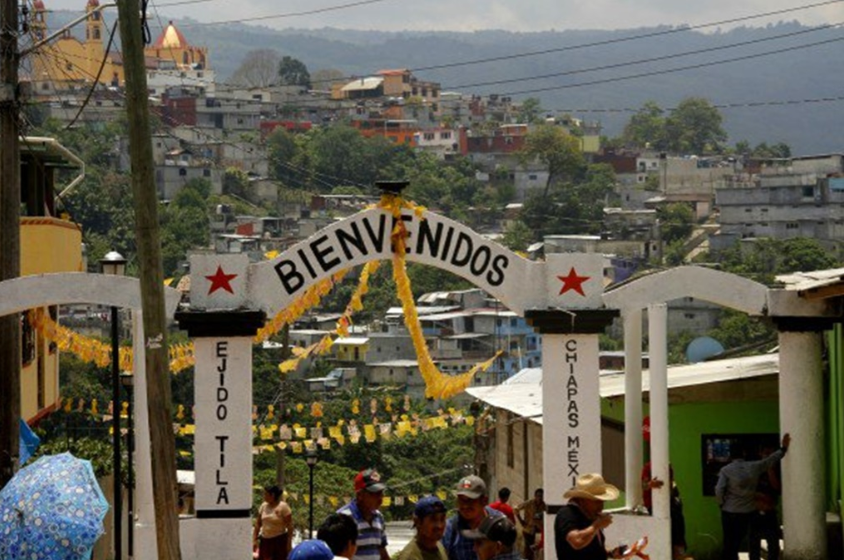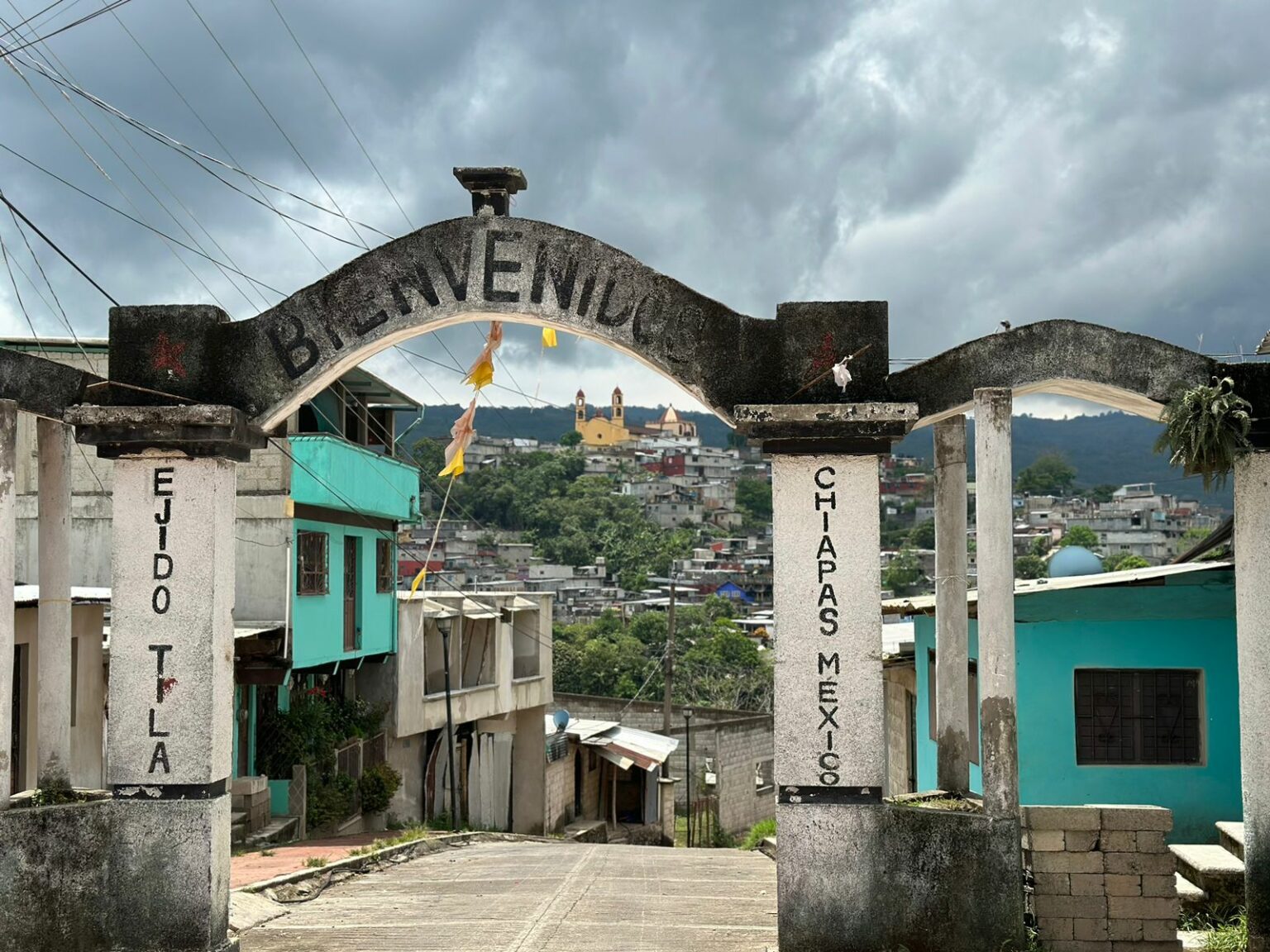Between the 4th and 9th of this month, serious confrontations took place in the ejido of Tila in the territory of the Ch’ol people in Chiapas. This situation lled to the displacement of around 4,000 of its inhabitants, who were helped to move by the National Guard and placed in temporary shelters in Yajalón. Meanwhile, a judge sentenced six residents of Tila to trial for alleged aggravated homicide, committed against two people, the State Attorney General’s Office informed.
The facts have been reported in the national media and the narrative has focused on the conflict between two groups, one called Los Autónomos and the other Karma. The accusations are very critical of the former and little information is offered about the latter.
There is no shortage of generic references to paramilitary action or intervention by organized crime. The assembly of the Tila ejido in a communiqué denied the accusations and recounted the aggressions of the Karma group. The federal government has been present both in the services for the displaced and in the attempt to reach an agreement that would allow their return to Tila, with military accompaniment and permanence, as long as necessary, a proposal that has not been accepted, since they have no confidence or guarantee of security for their lives and recovery of their property abandoned in the face of the escalation of violence. Even the emphasis of the presidential discourse has been centered on the fact that this is a long-standing conflict between two groups to which he urges pacification.
In view of this, it is important to take up again some central elements that I described in a collaboration in 2015, to situate the nature of the conflict and the responsibility of the State through its actions in the State and in the municipality and the negligence at the federal level. The Ch’ol people, in the ejido of Tila, Chiapas, were affected by the dispossession of 130 hectares of their territory, unconstitutionally occupied by the municipal council of Tila, as a result of the publication of Decree 72 of December 17, 1980, issued by the governor and the Congress of the state of Chiapas.
In its defense, the ejido filed an amparo (protection) lawsuit (259/1982) on April 14, 1982, before the first court, which was resolved 26 years after its filing, on December 16, 2008, granting the protection to the ejido of Tila and ordering the Municipal City Hall of Tila, the Governor of the State of Chiapas, the local Congress and the Public Registry of Property and Commerce to immediately return the lands to the Tila ejido and to cancel all types of deeds that privatized them.
The State government resorted to all kinds of arguments to support the physical and material impossibility of complying with the sentence, and consequently that indemnification for these lands was in order. The Ch’oles ejidatarios insist to this day that upon restitution, they would enter into a negotiation with those who occupy the lands. In November 2010, in the Supreme Court of Justice of the Nation (SCJN), they filed a motion for the non-execution of a sentence (1302/2010); the case was assigned to the then Minister Olga Sánchez Cordero, where it was decided to request that the plenary session study the amicus curiae, presented by María Gracia Castillo and Rodolfo Stavenhagen (=), offering information on the territorial and cultural ties of the Ch’ol people. Minister Sánchez Cordero prepared a project that conditioned the execution of the sentence; however, the majority of the ministers suggested substituted compliance (indemnification).
The case was directed to the agrarian sphere, since it was considered impossible to convert it into an indigenous case. The minister withdrew her project, and requested expertise from UNAM, and with the conclusion of her term of office, the incident has remained unresolved to date. As a result, in 2015 the ejidal assembly decided to self-execute the 2008 sentence and begin the construction of their autonomy as a town. The response of the state government was to send military and government agents, who, with the municipal police, patrolled the streets day and night sowing fear with serious incidents and intimidating the inhabitants ( La Jornada 29/12/15). Almost nine years of autonomy against the will of the State and the intervention of a municipal president who has continued for four consecutive periods with illegal interference in the internal life of the ejido to appoint ejidal authorities. Recent events began with the aggression against the ejido’s oversight commission, established to defend its autonomy. The denunciation of paramilitary activities of the opponents of the ejido assembly is serious; the humanitarian attention in shelters is good, but insufficient; the historical State impunity against the peoples who achieve recognition of their rights… on paper, is worrisome.
Original text by Magdalena Gómez published in La Jornada on June 18th, 2024.
Translation by Schools for Chiapas.


